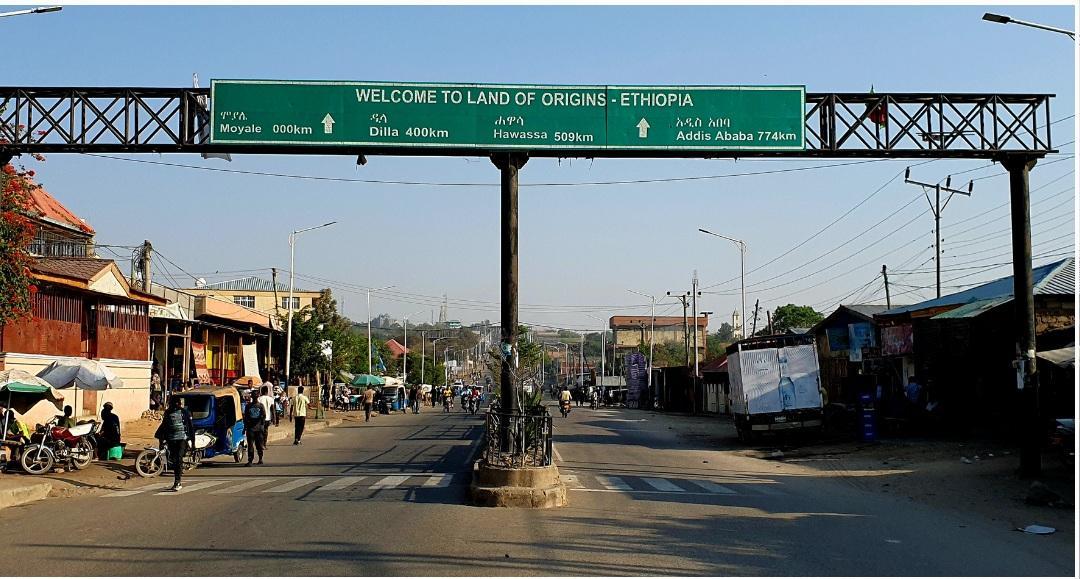By addisstandard
Africa-Press – Ethiopia. Home/News/East Borana residents report two month closure of Nagelle Borana–Moyale road amid conflicting official claims and stalled peace efforts NewsPolitics Trending
Analysis: East Borana residents report two month closure of Nagelle Borana–Moyale road amid conflicting official claims and stalled peace efforts
October 15, 2025 3 minutes read Adama – Residents of the East Borana Zone in Oromia say the main road linking Nagelle Borana to Moyale has been closed for more than two months due to renewed border insecurity between the Oromia and Somali regions. Local authorities have offered conflicting accounts regarding the road’s status.
Locals who spoke to Addis Standard said the closure has severely disrupted transport and livelihoods, as peace efforts between the two communities have yet to yield tangible results. An official from the East Borana Zone confirmed that the road remains closed. However, a Somali regional official insisted that “the road remains open.”
Residents attribute the disruption of movement to a peace and reconciliation process that has failed to materialize on the ground. Those interviewed described the process as “only between regional security forces,” adding that peace could not be achieved due to a “lack of an effective mediator.”
Tato Dida, a resident of Wachille Woreda, said clashes that erupted months ago have left many struggling to move freely. He noted that the Moyale–Borbor–Wachille route leading to Nagelle Borana has been blocked for over two months due to insecurity, making it difficult to reach relatives in the Liban Zone.
Derefa Jarso, a resident of Moyale town, said public transport between Moyale and Nagelle has been interrupted, forcing travelers to use longer, more expensive alternative routes. “People from Borana now go through Hawassa, while Somali residents travel from Moyale through Udde or Laye,” he said, adding that the situation has left residents “economically and physically exposed.”
Nura Kotola, a resident of Dhas Woreda near Nagelle Borana, told Addis Standard that people have been forced to travel via Hawassa—a three-day journey—to reach the zonal capital due to security fears. “Delivering reports to the zonal office or visiting relatives has become very difficult,” she said.
Abshir Hasan, administrator of Dawa Zone in the Somali Region, said peace was restored after reconciliation between officials last month, asserting that “fighting along the border has stopped.” Responding to residents’ complaints, he insisted that “the road from Nagelle Borana through Udet to Moyale has not been closed.”
An East Borana Zone peace and security official, speaking on condition of anonymity, confirmed the residents’ claim of road closure. The official said the government is working to resolve the crisis, urging both communities to exercise restraint after suffering “loss of lives and property.”
Clashes along the Oromia–Somali regional border in July 2025 left several people dead. Following the violence, Ethiopian National Defense Forces (ENDF) commanders facilitated peace talks between East Borana and Somali regional officials. Both sides later announced an agreement to cease hostilities, acknowledging that “conflict brings no benefit.”
However, residents told Addis Standard that reconciliation among officials has yet to translate into real peace on the ground. Gayo Kote, a resident of Nagelle Borana, said the truce was reached “only between regional security forces,” not among the communities directly affected. “For now, the shooting has stopped, but lasting peace has not been achieved,” he said.
Gayo added that the Nagelle Borana–Moyale road is a vital trade route connecting Borana communities and holds historical and cultural significance as part of the Gadaa and Raaba systems. He urged the government to establish a legally defined border between Borana pastoralists and Somali herders to ensure a sustainable end to recurring violence.
A resident of Wachille also told Addis Standard that sporadic gunfire continues. Tato said clashes erupted last week in Malka Adi village between residents of both sides, though “no casualties were reported.” He added that communities want peace but “lack an effective mediator.”
An East Borana Zone peace and security official said the ENDF remains deployed along the border “to maintain calm until peace is consolidated.”
Somali regional official Abshir Hasan confirmed that his administration is working with East Borana authorities to strengthen community-level peace, noting delays caused by “scheduling issues among Borana officials.”
The July clashes, which intensified through August, reportedly left six people dead in the Dhas and Wachille woredas on the Oromia side and seven others on the Somali side, according to the Udet Woreda Administrator in the Somali Region. Abshir said five suspects, including local militia leaders from border villages, have been arrested, while others remain at large.
According to the UN Office for the Coordination of Humanitarian Affairs (UNOCHA), over 288,000 people have been displaced since July 2025 following renewed violence along the Oromia–Somali regional border.
UNOCHA said the Somali and Oromia zonal authorities reported the figure to humanitarian assessment teams, noting that the conflict stems from long-standing tensions, unresolved territorial disputes dating back to a 2004 referendum, and recurring competition over scarce resources. Conflicts have previously caused mass displacements, with over one million people uprooted by mid-2018—many of whom remain in protracted displacement.
Tensions along the Oromia–Somali regional border have escalated following the Somali Regional State Council’s announcement of a controversial resolution to restructure administrative units. The move has sparked grassroots protests in both regions and intensified long-standing disputes along the border, particularly affecting the Borana community.
Source: Addis Standard
For More News And Analysis About Ethiopia Follow Africa-Press






